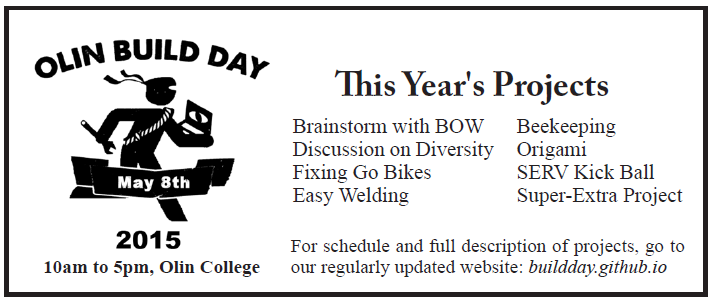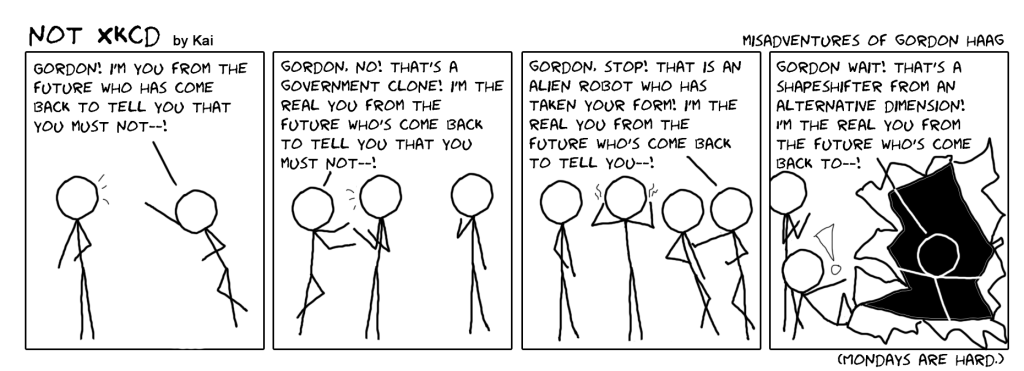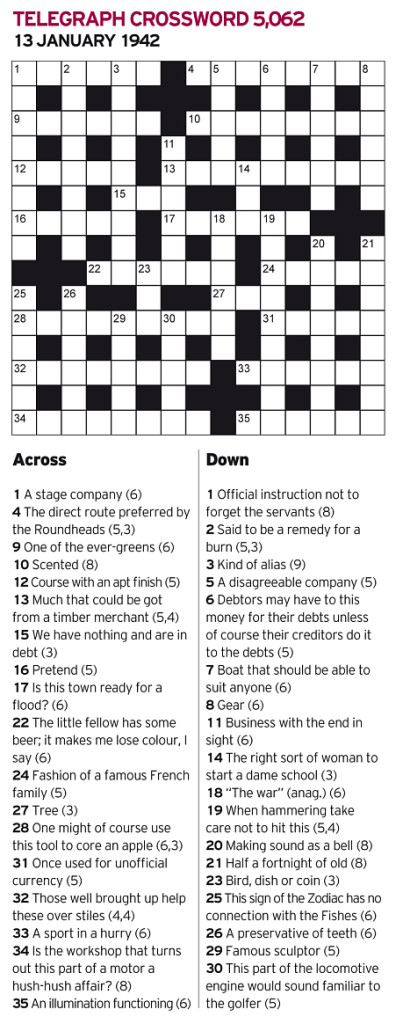Ah, springtime! The melting of snow! The chirping of birds! The wonderful return of warmer weather and longer days! However, spring harbors a monstrous beast which seeks to disrupt the life I’ve meticulously built at Olin. Ultimately, it shall succeed. No, it’s not room draw this time;* it’s something even more terrifying: graduation.
That’s right, graduation’s just around the corner, and I’m happy to say that I’m well prepared for the transition. Most importantly, I have a wonderful job lined up at athenahealth as a Product Manager. Hmm, but that’s strange. I’m majoring in E:C, so why am I taking a job as a PM?
The number of Olin engineers who choose to become PMs after graduation is fascinating. We hear all the time about Microsoft’s status as the #1 employer of Oliners, most of which are PMs. Others choose to become PMs at companies such as athenahealth or Facebook. I’ve heard many jokes regarding Oliners becoming PMs and “leaving behind their engineering skills.” I’m sure that at some point, even I have thought along those lines. So what happened? What changed? At what point did I transform from a programmer to a PM? The answer lies within my Olin journey.
But really it starts before that. I’m extremely fortunate to have been coding since 4th grade. Through an enrichment program, I spent several hours a week learning Scheme. By 9th grade, I had finished the program’s curriculum, thus making me what I believed to be a fairly proficient coder. Unfortunately, my high school had no programming classes, although that didn’t stop me from taking AP Computer Science on my own.
From the outset of my time at Olin, I saw myself as an E:C. ModSim provided a fun opportunity to reinvigorate my rusty coding muscles, making me excited for what was to come. The next semester, I naturally rushed to be in SoftDes.
Unfortunately, SoftDes wasn’t quite the class it is now. Stuck on a roughly 10-person project with an uninspiring visiting professor, I quickly realized I wasn’t the coder that I thought I was. In fact, I was easily in the lower half of the team skill-wise. The top half would quickly breeze through writing difficult code, while I could barely comprehend what to do. It was discouraging to realize that my previous skills didn’t allow me to keep up, but what made me even more disappointed was my lack of desire to. I felt so behind that I didn’t even think it was possible for me to catch up. I recognize now that what I lacked was the “hacker spirit” that drove the others to spend countless hours coding. I just couldn’t do it. I’m not saying that I wasn’t willing to put in hard work, but it was clear that I simply didn’t have that drive.
I’ve taken many more E:C classes since, and in many I’ve noticed the same things. For instance, in Mobile Prototyping, I had no desire to put in the 25-hour weekends that my teammates relished. In my heart, I convinced myself that I just wasn’t a coder. It wasn’t meant for me. Sure, I was pretty good at it, and sure, I loved a lot of my classes and learned a ton in almost all of them. I didn’t regret being an E:C, but just looking around at my friends and fellow E:C’s, I knew I wasn’t like them. I didn’t have their hacker spirit.
My beliefs were cemented by my two developer internships as a rising sophomore and rising junior. One summer, I worked for a large consulting company doing application development, and the other I worked at a startup doing website development. What both had in common was a rather boring and unsatisfying daily work life. It’s not that I didn’t enjoy coding. I just didn’t enjoy coding every day for eight hours in a row with little else. It clearly wasn’t the career for me.
And then I took UOCD. To this day, UOCD is my favorite Olin class and easily the most influential. Acting as team leader, every day I used skills that I did not even know I had. Presentation, organization, and design were all things I had done before, but never together like this. It was a challenging experience in many regards, but in the end, I understood that these were skills I could really use. And that’s when it clicked – I could be a Product Manager.
Despite this revelation, the next semester I applied to numerous development internships, none of which came through. I began to feel that I didn’t fit into a “true” programming job. But then, one last opportunity appeared. Strangely, it was an interview for PM internship at athenahealth, even though I hadn’t applied for one. As it turns out, my recruiter saw my resume and submitted it as a PM candidate based on my experience in UOCD. That was probably one of the luckiest things to ever happen to me.
The interview was extremely successful, with my UOCD experiences proving invaluable, and I got the internship. As for the internship itself? Overall, it was a fantastic experience. Sure, I may not have used all of the technical skills I’ve gained at Olin, but I did use all of the design, presentation, and organizational skills that Olin helped foster. It was very satisfying, and it made me realize that I could still own and shape a product without coding it. And most importantly, it was both challenging and fun. At the end, I was offered a full-time position, which I gladly accepted.
And now, almost a year later, I’m about to start work. In just one month, I will be a PM. And although it’s not what I expected to be when I started Olin, I truly thank Olin for enabling me to discover skills I didn’t know I had and helping me find where I think I belong in the world. As I’ve learned, your college experience and passions don’t always lead where you expect them to. Discover the skills you have and enjoy using. Use them and do cool things, even if it’s not what you originally set out to do. And the next time you hear that an Oliner is graduating “only to go off and be a PM,” understand that Olin does a lot more than just teach engineering. It gives us the skills we need for the future. And I don’t think that wanting to use those skills is very strange at all.
*Reference to April 2014 article


